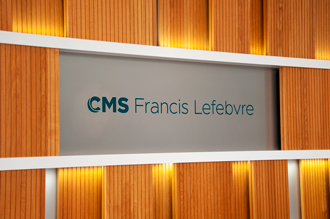
Authors
A review has been announced of good practices in supplier-distributor relationships as we emerge from the health crisis, to be conducted by the commercial practices review commission (CEPC – Commission d’Examen des Pratiques Commerciales). This initiative is to be welcomed and supported.
Indeed, there are few categories of products whose distribution has not been profoundly disrupted in recent weeks. There are also very few recently-finalised business plans that have not been thrown into disarray by the adoption of health measures and the effects of lockdown. Discussions could be held between parties to adapt agreed prices or business plans to new economic realities. What principles should be adopted during these types of renegotiations? What could be the scope and focus of these renegotiations?
The principles adopted for these renegotiations
There is little doubt that annual agreements can be renegotiated. This is now provided for in Article L.441-3 of the French Commercial Code, which states: “Without prejudice to Articles L.442-1 to L.442-3, any addendum to the agreement […] shall be subject to written mention of the new factors that justify it.”
This renegotiation option, which appeared in the Dutreil circular of 8 December 2005, is nevertheless subject to positions issued regularly by the CEPC (opinion of 22 December 2008), the authorities (information note of 22 October 2014), as well as courts (e.g. Paris Court of Appeal, 16 May 2018). These indicate that:
- justification must be provided by the parties;
- the commercial balance or general economy of the agreement must be preserved.
In the current circumstances, the factor justifying the renegotiation should not pose any difficulty since the Covid-19 crisis has disrupted the commercial relationship and undermined all or part of the business plan drawn up by the parties on the signature date of the agreement.
In more normal circumstances, preserving the balance or the general economy of the contract is the limitation imposed on discussions during the year. In view of recent upheavals, preserving that balance or economy could certainly now appear less of a limitation and more of a reason for renegotiation. In the case of turnover falling far short of forecasts or the evident impossibility for the distributor to meet commitments made in return for the agreed price reductions, forthcoming discussions will no longer be limited to an evident loss of balance or economy.
Beyond those two considerations, however, the parties must ensure that they comply with contractual provisions intended to adapt their agreement, as well as legal principles governing the process for initiating and conducting their discussions. They will no doubt provide the markers for these unusual negotiations. These foundations are laid down in Article L.442-1 of the French Commercial Code, specifically its two umbrella provisions resulting from the recent reform, calling for the sanction of any practice designed to:
- obtain or attempt to obtain an advantage without consideration or for a manifestly disproportionate consideration;
- subject or attempt to subject the other party to obligations creating a significant imbalance.
“Although it is accepted that a substantial modification of the context can justify questioning of the financial conditions negotiated in the annual agreement, it is still necessary that those conditions have actually been discussed and negotiated between the parties rather than imposed unilaterally,” the Paris Court of Appeal.
The legal provisions governing restrictive competition practices will therefore necessarily guide the following discussions. They could be imposed on the party which refuses such a discussion despite the necessary requirement to rebalance the economy of the agreement, as they are also invoked in the case of a manifest change in the price of raw materials...
Finally, arrangements will have to be made regarding Article L.442-3 of the French Commercial Code, prohibiting the retroactive effect of agreements, despite the difficulty of adapting an annual agreement solely for the future (for instance, what would be done about initial commitments not met?) when methods exist for calculating deferred benefits based on annual turnover.
Two options for establishing the balance and economy of the business relationship
In addition to usual discussions for reasons generally associated with the price of raw materials or changes to promotional budgets, the parties could therefore work together to restore the balance and economy of their commercial relationship as originally intended. This objective could be adopted by the CEPC in its next recommendation.
There will probably be numerous interpretations examining what is covered by these concepts of balance or economy of the commercial relationship.
Adaptation of the agreement in order to maintain the “agreed price”:
An initial possibility would be to preserve the existing agreement and specifically the stability of the “agreed price” (i.e. the “triple net” price after deduction of all rebates, discounts etc.). This concept has become central to construction of the summary agreement and the business plan, particularly when the products fall into the consumer goods category subject to Article L.441-4 of the French Commercial Code. In that case, the parties will work together to adapt the considerations justifying the overall allocation of economic benefits to the purchaser.
This first step would appear the most direct: the initial negotiation resulted in the fixing of an “agreed price” which, in principle, is fixed for the duration of the summary agreement. During renegotiations, the parties would be invited to make every effort to adapt the initially agreed considerations whether that means price reductions or service budgets. Commercial cooperation budgets could therefore be maintained by adapting the type or timetable of services. The commitments made in terms of range could also be adapted to past and future circumstances. Finally, any quantitative rebates could be adapted on a pro rata basis or according to new forecast turnover…
However, this initial approach to the balance and economy of the relationship appears to be uncorrelated with turnover and fails to take into account the sometimes clear discrepancy between discounted forecast turnover and the turnover initially considered by the parties and possibly specified in the agreement.
Yet didn’t the parties to the annual agreement base the balance of their agreement on that forecast turnover, which could now be completely different? In the presence of a clear discrepancy, shouldn’t the “agreed price” be renegotiated to take that new reality into account?
The in-depth adaptation of the agreement to the new perspectives of the commercial relationship
Another approach could address the disruption to the economy of the relationship envisaged by the parties on 1 March 2020, beyond the concept of “agreed price” which would no longer be sacrosanct.
This other approach would involve setting aside the content of the initial agreement by considering that the economy and balance initially defined have already been disrupted by the circumstances, that the “agreed price” is no longer entirely relevant in view of a major difference between the initial and updated forecast turnover, and that the initial commitments which cannot be kept due to the circumstances should be adapted to the new circumstances and the future of the relationship.
That approach would be likely to give rise to a more open negotiation: deep disagreements could appear with regard to individual aspirations and divergent interests. Each party could then highlight the economic impact resulting from the significant fall in its turnover to attempt to obtain revision of the “agreed price” and rewriting of the reciprocal commitments that have become impossible to keep. On the basis of the initial agreement, qualitative or quantitative price reductions as well as service budgets would be adapted to the new circumstances and forecasts.
Ultimately, one or the other of these approaches is likely to be retained by the parties. The first tends to adapt the agreement to the reality of the commercial relationship while respecting the “agreed price”. The second fully examines the economy of the relationship and includes the possible need to identify a loss of balance and to build a new agreement for the future.
Whichever approach is chosen, the parties must prioritise collaborative work by identifying, globally and then item-by-item, the extent to which their business plan needs to be adapted to the new circumstances. This collaborative approach, fostered by balanced proposals and commitments, will be the cornerstone of the trust necessary for future relations. Moreover, the addendum will be useful by taking into account all areas of disagreement, not just in relation to the business plan, particularly concerning penalties or minimum budget commitments subject to a price-reduction mandate.
Once again, the law and the negotiation strategy so dear to Laurent Plantevin converge in this respect: “1- The purpose of a negotiation is to achieve a stable agreement between the parties, allowing them to return to a state of harmony ensuring their security and viability. 2- Negotiation is a virtuous strategy allowing the parties to peacefully resolve their differences. ”
Let us hope that the review initiated by the CEPC leads to a recommendation which enlightens the parties and structures these forthcoming renegotiations!
Report: impacts of Covid-19 (Coronavirus)
Our law firm offers you its legal assistance to address all the impacts of Covid-19 (Coronavirus) on your business. Read our dedicated report below.
Find more about our law firm:
Our law firm is a leading international business law firm. Its deep roots, unique positioning and highly recognised expertise enables it to deliver innovative, high value-added solutions in tax, business, corporate and labour law.









